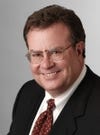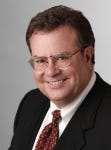The Evangelist's Way
The concept or service evangelist is a sueful one for foodservice directors looking to establish a vision for their teams.
JOHN LAWN, EDITOR-IN-CHIEF

Many of those who have known me for a long time would say that I am a “Mac Evangelist,” since I have embraced Apple's Mac software and computer platform since the days of its forerunner, the Lisa, in 1983. I've never missed a chance to point out the Mac's many superior features to friends and business associates.
Like other early fans of the Mac, I was enamored by its usability and functionality. It gave me new capabilities, helped me do many things better and made me feel empowered in a way I had not been before. I wanted to share that feeling with others. Without even realizing it, I became a Mac Evangelist.
In fact, it turns out that encouraging such evangelism was an actual part of the original Macintosh marketing plan. According to Guy Kawasaki, one of the original evangelists Apple hired, he and his colleagues “were Apple kamikazes who used fervor, zeal, and anything else to convince software developers to create Macintosh products…[and]…did more than convince developers to write Macintosh software. They sold the Macintosh Dream…Evangelism is showing others why they should dream your dream.”
In his books, The Macintosh Way and Selling the Dream, Kawasaki described how the program inspired thousands of ordinary users to become Mac Evangelists, a grass roots movement often seen as more of a cult than a result of product loyalty. A key part of the initiative was establishing a vision of change for the better and communicating that to others.
Today, Apple Computer's market capitalization is significantly higher than that of its long timerival, Microsoft, and it produces what are arguably the world's most popular smartphone and tablet computers. According to a recent analysis by Computerworld, if you'd invested $1,000 in each company's stock in January, 2000, your investment in Microsoft today would be worth $2,072. Your investment in Apple would be worth $13,294.
Being an Apple fan isn't considered cult-like any longer!
In a surprising number of ways, the Evangelist model has also been a useful one for me as I've represented Food Management and its operator community over the years. Our part of the restaurant industry doesn't inherently have the glamour of the commercial side. It is not featured prominently on the Food Network, doesn't get weekly reviews in the newspaper and doesn't have station concepts that go public on the stock exchanges.
That makes it a bit tougher for those of us whose role is to champion the segments FM's readers represent, but it's not as hard as some people think. As Kawasaki points out “the starting point for all evangelism is a cause.” And when you make something your cause, it is easy to be passionate about it.
(For a great current example, consider White House Chef Sam Kass, who has become the First Evangelist for First Lady Michele Obama's campaign to fight childhood obesity!)
The evangelism concept can also be a useful one for our readers, who must champion the role of in-house dining programs and the contributions they make to host institutions, employee communities and student and resident populations. They, too, must communicate a vision to staff and others that change in the program can make things better.
Elsewhere in this issue you can read about recent changes at the University of Colorado-Boulder dining program. In many ways you can see the “Evangelism” approach at work there.
As its dining services department sought to encourage mission buy-in among staff in the years leading to the opening of its new C4C dining facility, Executive Chef Kerry Paterson developed an apprenticeship program that gave culinary staff a vision of the improved food quality and skill sets required to make the new dining hall successful. FSD Amy Beckstrom created a process for evaluating quality and performance among the department's managers and staff “so they could see where we were going.” In both cases, in their own ways, they communicated a vision and helped sell the C4C dream.
If evangelism is a leadership strategy that appeals to you, you can hear Kawasaki speak to his ideas directly in September, when he'll be a keynoter at the FM IDEAS Conference in Dallas. For more details on the program, go to FMIDEAS.com.
In the meantime, think about your own operation. And whether it could benefit from a few evangelists of its own.
About the Author
You May Also Like




.jpg?width=300&auto=webp&quality=80&disable=upscale)

.jpg?width=300&auto=webp&quality=80&disable=upscale)